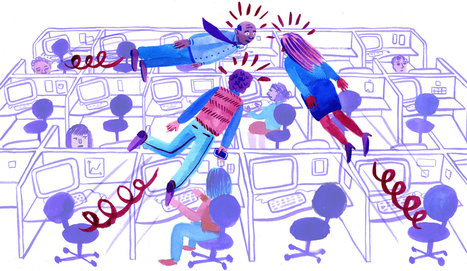In the classroom, subjects are often presented as settled and complete. Teachers lecture students on the causes of World War I, say, or the nature of matter, as if no further questioning is needed because all the answers have been found.
In turn, students regurgitate what they’ve been told, confident they’ve learned all the facts and unaware of the mysteries that remain unexplored. Without insight into the holes in our knowledge, students mistakenly believe that some subjects are closed. They lose humility and curiosity in the face of this conceit.
But our collective understanding of any given subject is never complete, according to Jamie Holmes, who has just written a book on the hidden benefits of uncertainty. In “Nonsense: The Power of Not Knowing,” Holmes explores how the discomforting notions of ambiguity and uncertainty affect the way we think and behave. Confronting what we don’t know sometimes triggers curiosity.
Show how the process of discovery is often messy and non-linear.
Rather than present breakthroughs as the logical result of a long trek toward understanding, teachers can share with students how discoveries are often made: through trial and error, missteps, happy accidents and chance. Firestein describes scientific discovery as “groping and probing and poking, and some bumbling and bungling, and then a switch is discovered, often by accident, and the light is lit.” All the poking around in the unknown, he adds, is what makes science exhilarating.
Learn more / En savoir plus / Mehr erfahren:
http://www.scoop.it/t/21st-century-learning-and-teaching/?tag=curiosity
http://www.scoop.it/t/21st-century-learning-and-teaching/?tag=Serendipity



 Your new post is loading...
Your new post is loading...












